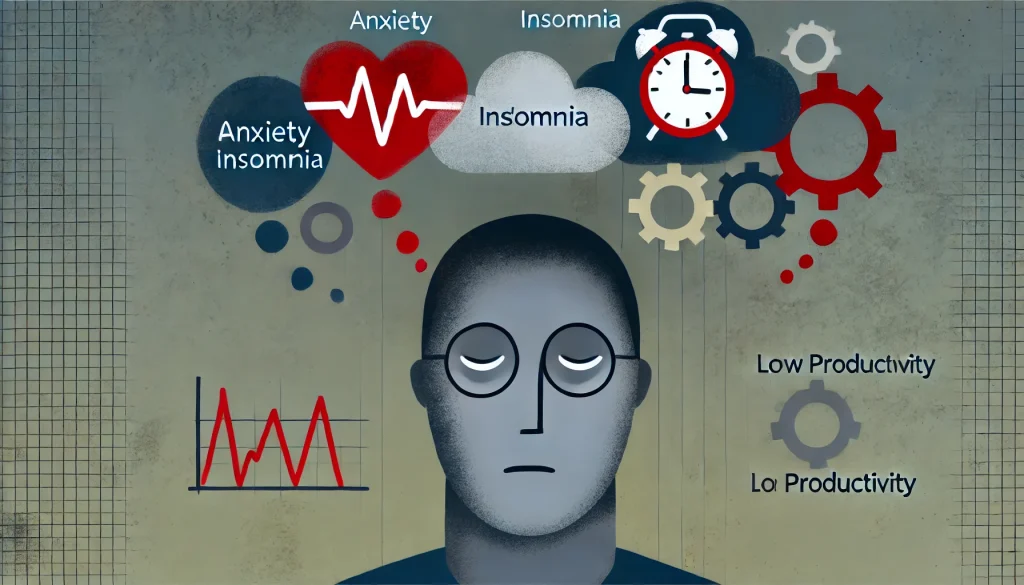Overthinking can be paralyzing, keeping you stuck in endless cycles of worry and doubt. Learning to stop overthinking and start living can be a game-changer for mental wellness and life satisfaction. This guide, created by a psychologist and SEO expert, explores why we overthink, its effects, and actionable strategies to regain control of your thoughts.
1. Introduction: The Overthinking Trap

Overthinking often begins as a way to manage or solve problems, but it quickly spirals into a mental trap. Thoughts loop endlessly, leading to anxiety and a sense of being “stuck.” While occasional analysis is normal, chronic overthinking can hold you back from enjoying life.
2. Why Do We Overthink?
Overthinking is often triggered by uncertainty and fear. It acts as a mental “safety net” to prevent mistakes or embarrassment, but this habit can take over, distorting perceptions and worsening stress.
- Common Triggers: Self-doubt, perfectionism, fear of judgment.
- Psychological Roots: The brain’s desire to control and anticipate every outcome.
- Social Influence: Social media and information overload encourage constant comparison and self-criticism.
3. Effects of Overthinking on Mental and Physical Health

Long-term overthinking can lead to more than just sleepless nights. Here are some ways overthinking affects well-being:
- Anxiety and Depression: Constant worry amplifies anxiety and can lead to depression.
- Physical Strain: Stress hormones increase, leading to fatigue, headaches, and even digestive issues.
- Reduced Productivity: Overthinking drains mental energy, making it difficult to focus or complete tasks.
SEO Keywords: Effects of Overthinking, Impact of Chronic Overthinking, Physical Health and Overthinking, Mental Health Consequences of Overthinking
4. Strategies to Stop Overthinking
The journey to stopping overthinking involves mental discipline and practice. Here are effective strategies to start living with more ease and presence.
4.1 Practice Mindfulness
Mindfulness is one of the most effective techniques for reducing overthinking. By focusing on the present moment, you can reduce the power of repetitive thoughts.
- Breathing Exercises: Try a simple deep-breathing exercise. Focus on each breath, noticing how it fills your lungs and releases tension.
- Observe Without Judgment: Instead of reacting to thoughts, practice observing them without assigning meaning or judgment.
SEO Keywords: Benefits of Mindfulness for Overthinking, How to Practice Mindfulness, Mindfulness Tips for Anxiety
4.2 Set Boundaries with Thoughts
Setting mental boundaries can limit the time spent on unproductive thoughts. Establishing limits helps train your brain to let go of intrusive thinking.
- Designate a “Worry Time”: Allow yourself 10-15 minutes a day to focus on your worries, and then mentally “close” that time.
- Practice Thought-Interrupting: When you notice overthinking, mentally say “stop” and shift your focus to a different activity.
SEO Keywords: Setting Mental Boundaries, How to Stop Overthinking, Techniques to Interrupt Overthinking
4.3 Embrace Imperfection
Overthinking is often linked to a need for perfection. Learning to embrace imperfection can be transformative.
- Set Realistic Expectations: Aim for “good enough” rather than perfect.
- Shift Focus from Outcome to Effort: Enjoy the process rather than obsessing over the results.
SEO Keywords: Letting Go of Perfectionism, Embracing Imperfection to Reduce Anxiety, How to Stop Perfectionism
4.4 Take Action Over Analyzing
One of the best ways to combat overthinking is to act. Often, we overthink because we are afraid of making the “wrong” choice. Action creates momentum and clarity.
- Break Down Decisions: Simplify choices by breaking them into smaller, manageable steps.
- Practice “Good Enough” Decisions: Remind yourself that making a choice is better than being stuck in indecision.
SEO Keywords: Take Action to Reduce Overthinking, Breaking Down Decisions, How Action Reduces Anxiety
5. Frequently Asked Questions (FAQs)
Q1: Is overthinking a mental disorder?
A1: Overthinking itself is not a disorder, but it can lead to or be a symptom of anxiety and depression.
Q2: Can mindfulness cure overthinking?
A2: While mindfulness cannot “cure” overthinking, it is an effective technique to manage and reduce its frequency.
Q3: How long does it take to stop overthinking?
A3: Overcoming overthinking is a gradual process that varies by individual. With consistent practice, most people notice improvement within weeks.
Final Thoughts
Overcoming overthinking is possible with intentional actions and mindset shifts. By practicing mindfulness, setting boundaries, embracing imperfection, and choosing action over analysis, you can reclaim control over your thoughts and start truly living.

Leave a Reply